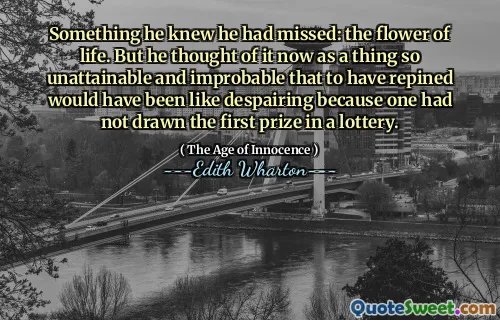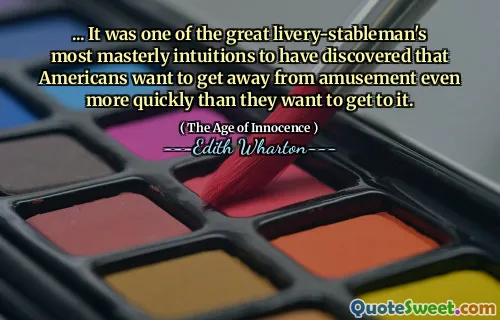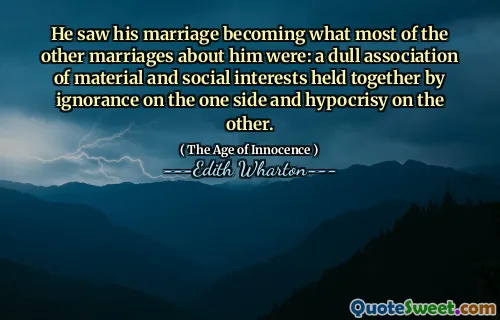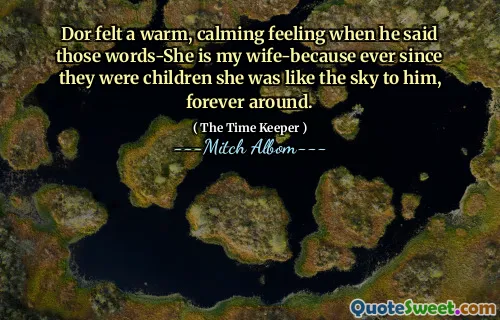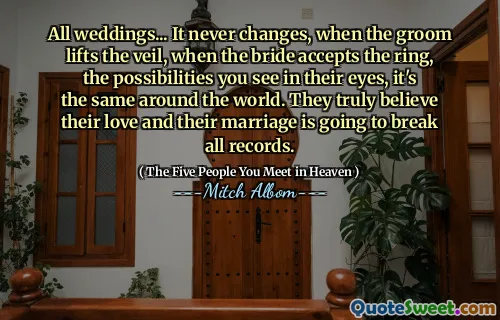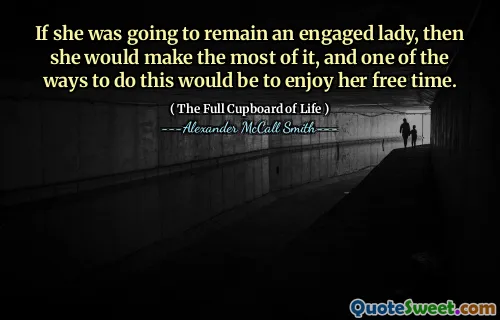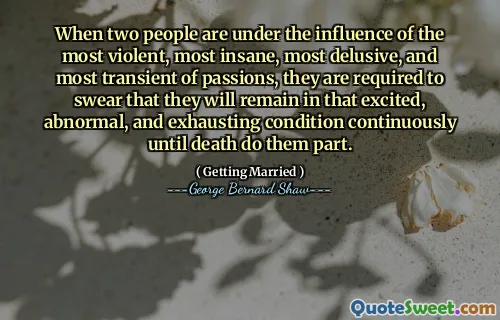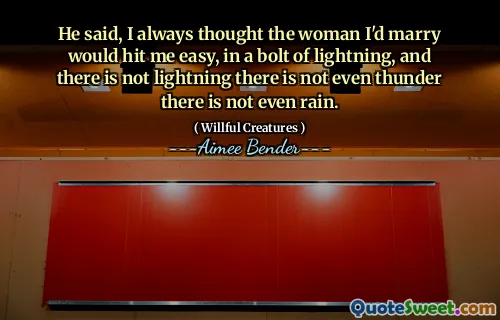
He saw his marriage becoming what most of the other marriages about him were: a dull association of material and social interests held together by ignorance on the one side and hypocrisy on the other.
This quote from Edith Wharton's 'The Age of Innocence' offers a piercing observation on the nature of societal marriages during that era. It underscores how many unions are reduced to superficial arrangements, where genuine emotional connection gives way to transactional and social considerations. The phrase 'dull association' suggests a stagnancy—marriages that have lost their vitality and intimacy, becoming mere formalities rather than partnerships rooted in love and mutual understanding. The mention of interests—material and social—highlights the priorities that often dominate such arrangements, where status, wealth, and societal expectations overshadow personal happiness. The references to ignorance and hypocrisy reflect a collective facade maintained to uphold social standing, concealing dissatisfaction and emotional neglect beneath a veneer of propriety. This portrayal challenges us to consider the insidious ways societal pressures can distort personal relationships, transforming them into instruments for social mobility rather than sources of genuine companionship. It also invites reflection on the importance of authentic connection and the consequences when societal expectations eclipse personal fulfillment. Wharton’s depiction resonates beyond her historical setting, like a universal critique of social conformity that can threaten the integrity of personal relationships. It urges readers to question the foundations of their partnerships and to value honesty and emotional sincerity over superficial appearances, especially in societies that emphasize social rank and material success.

